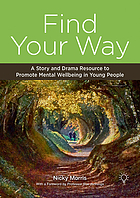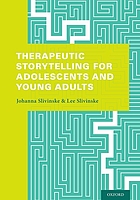Paste this search into WorldCat: su: (therap* OR psychotherap*) AND (storytelling OR narrative)
 Find Your Way : a story and drama resource to promote mental wellbeing in young people
by
Find Your Way : a story and drama resource to promote mental wellbeing in young people
by
 Re-authoring life narratives after trauma : a holistic narrative model of care
by
Re-authoring life narratives after trauma : a holistic narrative model of care
by
 Therapeutic Storytelling for Adolescents and Young Adults
by
Therapeutic Storytelling for Adolescents and Young Adults
by
Sample Topic : Narrative therapy for people with addictions